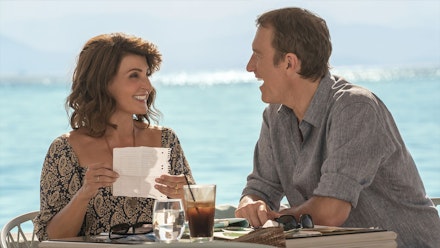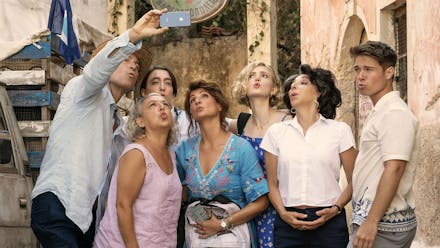There are films that are essentially shaggy-dog stories, where a narrative seems to wander around for ages before arriving at its point. Then there are films more like shaggy dogs, where there’s a lot of activity to no obvious purpose beyond a vague air of amiability. The third instalment of Nia Vardalos’ likeably low-stakes franchise (there was also a short-lived TV show) is decidedly the latter. It at least takes place in a scenic location, and with broadly pleasant people, but there are few of the laughs of the original.

Vardalos, who adds directing responsibilities to her writing and starring duties this time, returns as Toula, the Greek-American who briefly shocked her family 20 years ago by bringing home the WASP-y Ian (John Corbett). She is finally taking him to visit her family roots in Greece following the death of her father Gus (the late Michael Constantine) and brings along others including daughter Paris (Elena Kampouris), aunt Voula (Andrea Martin, a consistent scene-stealer) and brother Nick (Louis Mandylor). Gus’ village is almost entirely depopulated, so they quickly adopt or befriend everyone left in it, even as Toula frets about finding her father’s old friends, as promised, and Nick tries to fulfil one of Gus’ last wishes.
Vardalos clearly has enormous affection for the sprawling, attentive Portokalos family – they were, after all, inspired by her own clan – and at times they may remind you of your own loved ones; put that down to Tolstoy’s maxim about all happy families being alike. But they’re also extremely broad characters engaged in relentlessly zany hijinks, so any fondness you feel has to carry you through endless unfunny set-pieces. A hangout movie that doesn’t go anywhere can be fun, but this one seems to want to have its baklava and eat it, labouring endlessly to give its numerous characters a few moments of connection and revelation but leaving the lingering impression that nothing has actually happened. It's all inoffensive and even likeable, but this one-joke conceit is now dustier than the Parthenon.
